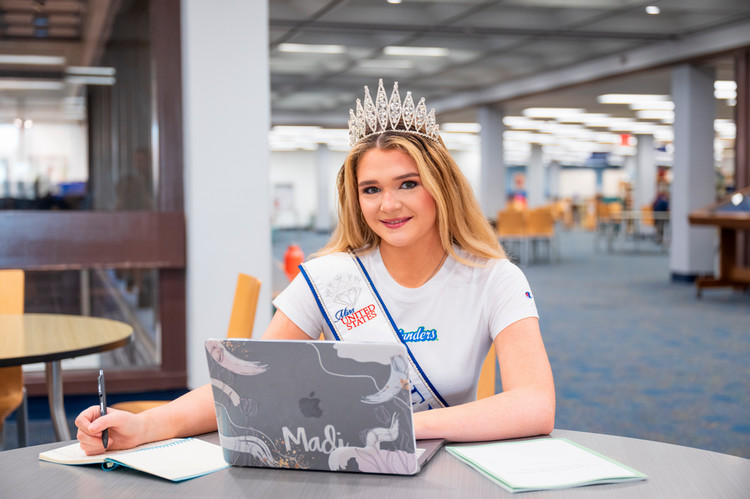Island University Liberal Arts Researchers Awarded National Science Foundation Grant
CORPUS CHRISTI, Texas – The College of Liberal Arts (CLA) at Texas A&M University-Corpus Christi has received its first grant from the National Science Foundation (NSF).
The Island University team received a $75,000 grant from a new NSF program called Build & Broaden, which is sponsored by the NSF Directorate for Social, Behavioral, and Economic Sciences. The goal of Build & Broaden is to fund innovative solutions to address the low numbers of competitive research proposals from Minority-Serving Institutions (MSIs) in social, behavioral, and economic sciences (SBE) relative to other institutions.
The Island University research team consists of Dr. Isabel Araiza, Associate Professor of Sociology; Dr. Jennifer Epley Sanders, Associate Professor of Political Science; Dr. Colleen Fitzgerald, Associate Vice President for Research and Professor of English, and Dr. Michael Ramirez, Associate Professor of Sociology.
The team received funding for its submission, “Build and Broaden: Bridging Critical Research Collaborations for Faculty Success in Texas MSIs.” The grant, which runs from Sept. 1, 2020, to Feb. 28, 2022, provides funding for three mini-conferences for MSI faculty in Texas, with a focus on participation by faculty of color, women faculty, and mid-career faculty.
“Historically, NSF funding typically goes to STEM programs and/or top-tiered and R1 schools that are not MSIs. Support for regional universities, especially for HSIs, is important because we, too, have valuable contributions to make to the social sciences and our communities,” said Epley Sanders. “As for opening doors in the future, name recognition and a track record of awards can be influential for funding agencies’ decisions when they are reviewing new applications. Setting a precedent will hopefully inspire more CLA faculty to apply to national-level grants as well.”
The grant’s proposed timeline was to schedule the mini conferences featuring a combination of NFS collaborators, Island University faculty and staff, as well as participants themselves as presenters during the spring 2021 semester. However, those plans have been amended due to the COVID-19 pandemic.
“Right now, we are planning to host a series of online conference components during spring 2021 and possibly into fall 2021. We hope to use these to feed into – and generate interest – and allow some prep work for face-to-face conferences that will happen likely in spring 2022,” Ramirez said.
Ramirez said the team is interested in learning about the obstacles other professors at MSIs face.
“Other researchers have examined how career aspirations develop – and shift – over time,” Ramirez said. “We, likewise, would like to see how working at an MSI – with lots of teaching and service – can influence people’s aspirations, and ultimately the time we have available for things outside of teaching and service, namely research productivity. Among all these issues, we are interested in consequences to faculty of color.”
Araiza said the team also hopes to provide support to more seasoned faculty so they too will feel empowered to apply for national grant funds.
“For a lot of more senior faculty, the norms by which we are evaluated have changed as the University’s focus has changed. While this can be exciting for new faculty, freshly out of their Ph.D. programs and primed to continue their research agenda, this can be a challenge for those of us with tenure who dedicated significant amounts of our time to teaching, mentoring, and service,” said Araiza. “The work we hope to accomplish with this grant is to provide support and an inclusive opportunity.”
Epley Sanders said the team will collect post-event surveys to evaluate the conference process and to assess conference outcomes related to the professional development and career trajectories of each participant.
The team notes that because of COVID-19, the collaborative work to write and submit this grant was done exclusively via online platforms.
"As a team newly formed and coming together entirely virtually, our success in getting funded is a testament to the culture of innovation at the Island University, even in these trying times. It is especially meaningful given how our success has the potential to increase inclusion and to empower faculty of color, women faculty, and mid-career faculty not only at TAMU-CC, but at MSIs throughout the region," Fitzgerald said.











